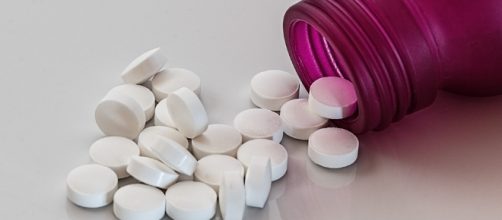The food and Drug Association (FDA) is always monitoring products so that any safety issue will be identified, customers can be notified, and the drug recalled. It is important to note which products have been taken off the market, should it still be sold without the necessary go-ahead. According to the FDA, a drug will be removed from the market once the benefits do not outweigh the potential negative impact.
Recently recalled
Oxytocin with lactated ringers or lactated Ringers and dextrose: Oxytocin compounded with lactated ringers and dextrose products that were produced between July 6, 2017, and August 29, 2017, have been voluntarily recalled by PharMEDium Services.
Laboratory testing has indicated that the potency shows lower levels than anticipated. This lack of necessary potency from the drug only affects certain lots of the Oxytocin, however, PharMEDium Services is very cautious and does not wish to take any chances that may cause harm. Oxytocin improves uterine contractions and aids in maternal issues. As of this September, there have been four reports of complaints regarding the Product.
ShopRite’s semi-sweet real chocolate chips: Munch on another snack to satisfy your sweet tooth as Wakefern Food Corp. has recalled its Semi-Sweet Real Chocolate chips. Customers should be on the lookout for those with "Best if used by” dates April 11, 2019, and April 12, 2019.
To date, no illnesses have been reported, however, if you have a milk allergy then you may have an allergic reaction to eating the delicious treats, according to a recent FDA notice.
Lucky Mart Inc. Anti-Itch Lotion: Lucky Mart has recalled lots C14005, C16001, and C16002 of Piyanping Anti-Itch Lotion. Dexamethasone is the active pharmaceutical ingredient rather than hydrocortisone. Dexamethasone is more potent than hydrocortisone and may cause side effects when used multiple times during the day. Some of the side effects include a weakened immune system, high blood sugar, and glaucoma. Thus far no adverse reports have been made.
Drugs that caused deaths in the 90s and 2000s
In 2005, Darvon & Darvocet (Propoxyphene) was banned in the United Kingdom, but before it was banned, it was reported to have caused more than 2,000 deaths between 1981 and 1999.The opioid pain reliever was said to cause severe heart toxicity.
The painkiller Duract (Bromfenac) was only on the market for one year before it was reported to have been the cause of four deaths and 12 patients with liver damage, according to AMCT.
Lotronex (Alosetron) was introduced to the market as a drug that curbs irritable bowel syndrome in women. Before a year had passed, there were at least three deaths and 49 cases of ischemic colitis (inflammation and injury of the large intestine). According to the FSA, The manufacturer of Lotronex (alosetron) tablets -- a drug used to treat irritable bowel syndrome in women -- voluntarily decided to withdraw Lotronex from the market after discussions with the Food and Drug Administration (FDA) on how to best manage risk.
According to an official notice by the FDA, in 1992 the drug Omniflox (Temafloxacin) was introduced on the market, and five months later it was recalled after three deaths were reported. The antibiotic was used for respiratory tract infections.
Customers should be careful to read all drug ingredients before taking them just in case they are allergic to anything in the product. Also, taking a note of the batch number will also be helpful should a recall be made.


